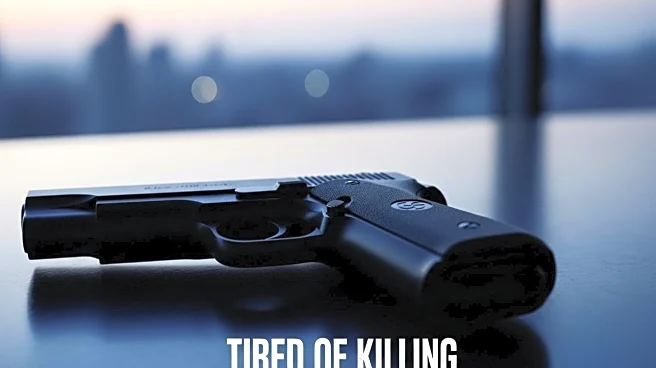What's Happening?
Italian director Daniele Vicari has unveiled his latest film, 'Tired of Killing. Autobiography of an Assassin,' which is based on the autobiography of Antonio Zagari, a former assassin for the Calabrian criminal syndicate 'Ndrangheta. The film, starring Gabriel Montesi, Vinicio Marchioni, Selene Caramazza, and Andrea Fuorto, explores Zagari's life and his realization that killing others also meant killing a part of himself. Vicari discovered Zagari's book years ago and was drawn to its introspective narrative, which allowed him to interpret the events subjectively. The film is set against the backdrop of the 1970s, a time of societal change and a strong desire for freedom, which Zagari felt he lacked due to his origins and destiny as a son of a Calabrian boss.
Why It's Important?
The film sheds light on the psychological and emotional turmoil experienced by individuals involved in organized crime, offering a unique perspective on the human condition and the quest for freedom. It challenges the romanticized portrayal of mobsters in popular culture by highlighting the internal struggles and lack of honor within criminal organizations. This narrative is significant as it provides a deeper understanding of the impact of crime on individuals and society, potentially influencing public perception and policy regarding organized crime. The film also underscores the universal theme of seeking freedom from societal and familial constraints, resonating with audiences worldwide.
What's Next?
As the film premieres in Venice, it is expected to spark discussions about the portrayal of crime in media and the ethical implications of glorifying such lifestyles. Vicari's approach may inspire other filmmakers to explore similar themes, focusing on the psychological aspects of crime rather than its sensationalism. The film's debut could also lead to increased interest in Zagari's autobiography, prompting further exploration of the 'Ndrangheta and its impact on Italian society. Additionally, the film may influence future narratives in cinema, encouraging a more nuanced depiction of crime and its consequences.
Beyond the Headlines
The film delves into the ethical and moral dilemmas faced by individuals trapped in criminal organizations, highlighting the internal conflict between loyalty and personal freedom. It raises questions about the nature of honor and the societal pressures that drive individuals to commit acts of violence. By revealing the secret codes and inner workings of the 'Ndrangheta, Zagari's story challenges the notion of loyalty and betrayal within criminal syndicates, offering a rare glimpse into the mindset of those who choose to break free from such constraints. This narrative could lead to broader discussions about the role of personal agency and the possibility of redemption in the face of societal and familial expectations.








